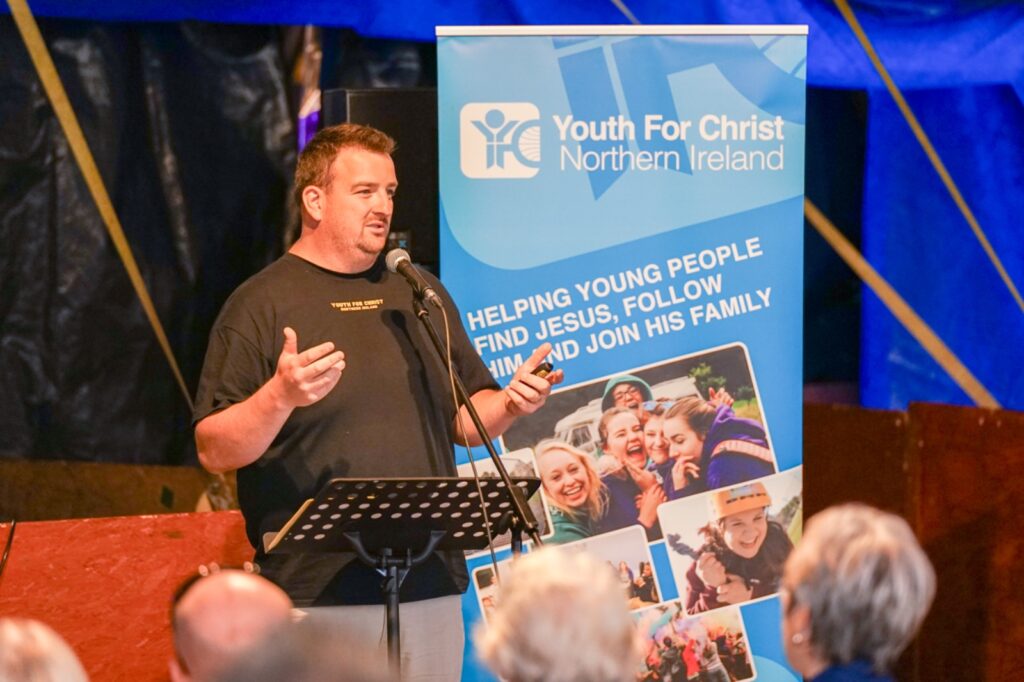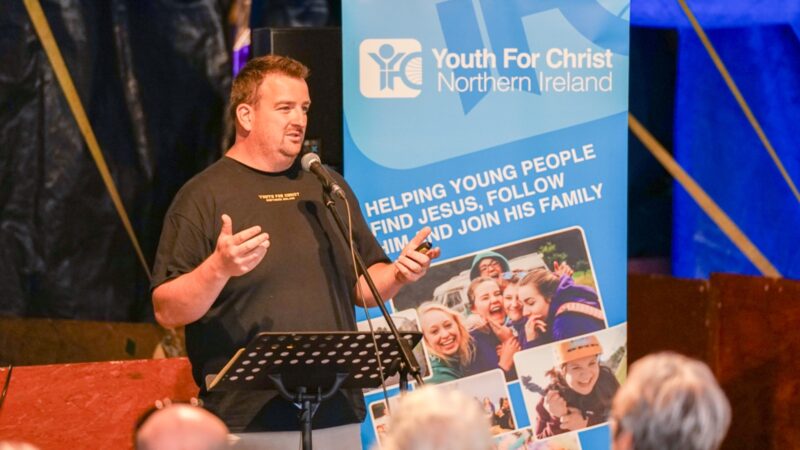By Lucy Begbie
Now let’s be brutally honest here… who hasn’t read the account of the Samaritan woman at the well who had had five husbands and was currently living with another man, and has not raised their eyebrows a bit?
A point Jonny Mc Clune highlights, and which is key to the seminar at New Horizon, Mission to the Marginalised: Bridging the Gap, he co-ran with fellow worker Jonny Matthews, both from Youth for Christ NI.

He puts the Samaritan woman’s situation into context by listing some of the reasons a husband could have divorced his wife at that time according to rabbinical teaching:
“She could have burnt or over-salted his dinner; he could have divorced her because he no longer found her attractive or he’d found someone else he wanted to marry.
“She could have been widowed…and as she would have been totally reliant (financially) on men in this culture she could have turned to prostitution…; the other thing that could have happened is she could have been barren…
“We’re not given a divorced, beheaded, died sort of system story as to why this woman ended up with five husbands and living with someone who wasn’t her husband, but it’s probably quite likely it wasn’t her fault…
“There’s more to her story and there’s more to the story of people who are marginalised in Northern Ireland,” he emphasises.
The Youth for Christ Operations and Ministry Director for Northern Ireland, goes on to list some of the disadvantages experienced by the marginalised – areas that often merge into each other – economic, educational, cultural, health and relational.
He points to the Welsh Adverse Childhood Experiences (ACE) Study 2016 looking at a demographic that would be similar to that of the disadvantaged in Northern Ireland, and which Youth for Christ NI has used to consider the impact of adverse childhood experiences such as abuse, neglect and family dysfunction that come about as a result of these disadvantages:
“For people who have experienced four or more childhood adverse experiences as opposed to those who have none, they’re twice as likely to experience chronic disease, twice as likely to have lung disease, three times more likely to have a coronary heart disease, six times more likely to experience mental illness, six times more likely to take up smoking,11 more times likely to use cannabis, 11 times more likely to be incarcerated,” he says.
Costly Compassion
YFCNI Centre Co-ordinator for Craigavon, Jonny Matthews, who had his own experience of disadvantage when growing up relays how he began to meet weekly for a coffee in Sainsburys with a drug addict who was in his mid thirties.
He freely acknowledges that the addict was the sort of person he tried to protect the youth he worked with from, and at first he was reluctant to meet with him. The man came from a life of drug addiction – he had been addicted to drugs for 20 years. And he had been involved in organised crime since he was 14 – stealing cars and dealing drugs were just two of his crimes.
The man’s dad hadn’t been around when he was growing up and his stepfather was abusive to him.The more Jonny got to know him, the more he heard his heart-breaking story, the more he started to feel real compassion and they became good friends.
He describes how the man came to stay with him and his family for a week admitting, “we did not want this massive inconvenience to interrupt our comfortable Christian life.” And yet he says, “to sit with this guy night after night as he came off drugs… while his mind fell apart, I really began to understand how not only me, but my church, had missed the mark reaching these people.”
He went on to become the man’s next of kin which meant every time he attempted to take his own life, every time he was admitted to hospital, every time something went wrong in his life Jonny was contacted, and he concedes he began to ask himself was it worth it.
Four years later the two men are still friends and the former addict is now clean of drugs, has got himself a flat, and is beginning to rebuild his life. Jonny has shared the gospel with him many times – as yet he’s not become a Christian, but his son has.
When Jonny asked his friend what helped him to change he said: “I don’t remember any sermons, I don’t even remember a service, but I remember the people who sat with me in my pain and mess.”
A visibly emotional Jonny concludes:
“We look at the cycle that breaks that cycle of abuse and trauma and it’s Jesus, right? But it’s not the middle class Jesus – it’s the radical Jesus. So the only way this is possible, the only way his (my friend’s) son became a Christian is through a reluctant willingness to get out of my comfort zone.
“And this was not a radical act but an act of obedience to the call to live out the principles of the kingdom in our every day …
“What is our Christian mandate? I think it’s the call to care.”
